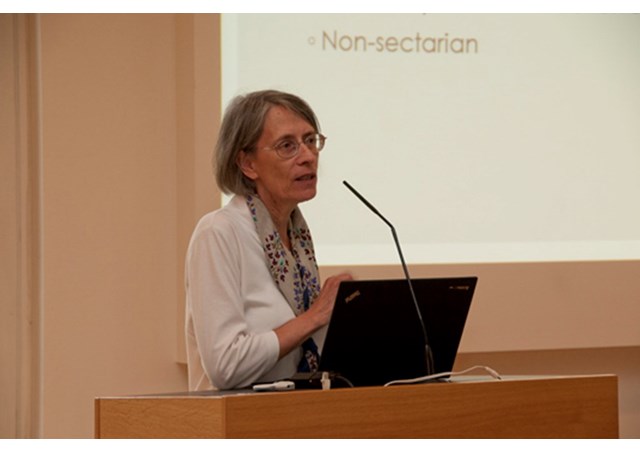
Nosta Aetate legacy for Buddhist-Catholic relations

(Vatican Radio) Interfaith dialogue is under the spotlight this week as the Catholic Church marks the 50th anniversary of the Second Vatican Council declaration, Nostra Aetate, which profoundly reshaped its relations with people of other faiths. Issued in the closing weeks of the Council in 1965, the document for the first time urged Catholics to recognize the truth present in other religions and to work together with other believers for the benefit of all of humanity.
Professor Sallie King is a specialist in Buddhist-Christian dialogue and was a participant at a recent interfaith conference at Georgetown University in Washington D.C. organised by the Ecclesiological Investigations International Research Network. She talked to Philippa Hitchen about the legacy of Nostra Aetate on Buddhist-Catholic relations today
Listen:
"As far as the Buddhist-Christian dialogue goes, 'Nostra Aetate' has opened the door to a very good relationship”. Professor King gave various examples of ways in which Buddhists and Catholics in particular learn from each other.
However, she also shed light on the increasing hardening attitudes of Buddhists towards Catholics, in relation to developing nationalism in Sri Lanka and Myanmar. Ms King explained that in response to British colonialism and desperate to free themselves from control, the Sri Lankan people clung to Buddhism for a sense of national identity.
“In order to psychologically free themselves from the British Empire they had to articulate to themselves ‘if we’re not British what are we?’, ‘Well, we’re Sri Lankans’, and ‘What does it mean to be Sri Lankans?’ ‘It means we’re Buddhists’”.
Ms King discussed the negative impact of Pope John Paul’s comments on Buddhist-Catholic relations, discouraging Catholics from being attracted to what Buddhism had to offer. However, any resentment was brushed aside following Pope Francis’ recent visit to Sri Lanka (January 2015), when he recognized that there was not a Catholic majority in the country and that there were people of all different religions living there.
Whilst Professor King believes in a sense of communion between the two religions, what she calls an “immediate recognition across a yawning gap of doctrinal differences”, she acknowledges that, theologically speaking, Buddhism is the “odd one out”. King explains that without Buddhism, everyone could say they worship a different version of God; instead, the nontheistic religion “spoils the interfaith party”.
Sallie King emphasizes just how spiritually enriching a process confronting these issues is, and reminds us of how interfaith dialogue is “constructive for people’s own spiritual growth”.
| All the contents on this site are copyrighted ©. |


